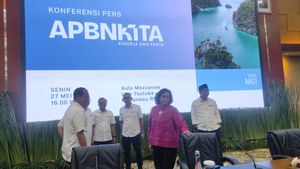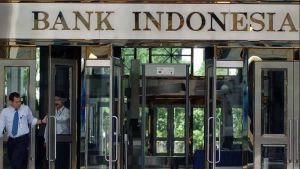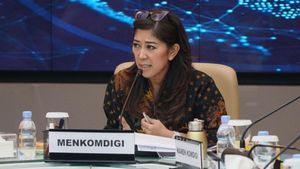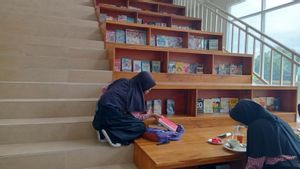JAKARTA - Member of the House of Representatives (DPR) RI from the Prosperous Justice Party (PKS) faction Muhammad Nasir Djamil reminded that currently the government's debt burden is getting heavier so that it has burdened the State Revenue and Expenditure Budget (APBN) too much.
"The PKS faction considers that the government's debt burden is getting heavier. This can be seen from the allocation of debt interest payments which are increasingly burdening the state budget," Nasir said on the agenda of conveying views related to the Macroeconomic Framework and the Principles of Fiscal Policy (KEM PPKF) for the 2025 RAPBN at the Plenary Meeting, Tuesday, May 28.
Nasir said that the heavy burden can be seen from the increasingly large allocation of debt interest payments in 2014, the portion of debt interest payments of 11.05 percent which increased to 19.56 percent in 2023.
According to Nasir, during 2014 to April 2024, government debt increased more than 3 times from IDR 2,608 trillion in 2014 to IDR 8,262 trillion in 2024.
In addition, Nasir reminded that the Government still holds quite a large homework, the debt due to the central government reaching Rp704 trillion by 2025.
In fact, according to Nasir, until 2028 there were still around Rp2,600 trillion in debt due which must be paid.
Previously in the KEM-PPKF document, Minister of Finance Sri Mulyani Indrawati targeted the deficit in the State Revenue and Expenditure Budget (APBN) for the 2025 fiscal year to be in the range of 2.45-2.82 percent of Gross Domestic Product (GDP).
"The fiscal deficit is estimated to be in the range of 2.45-2.82 percent of GDP," said Sri Mulyani.
SEE ALSO:
Meanwhile, Sri Mulyani conveyed that efforts to cover the deficit were carried out by encouraging innovative, prudent and sustainable financing, including controlling the debt ratio in the management limit in the range of 37.98 percent - 38.71 percent of GDP.
Furthermore, by encouraging the effectiveness of investment financing to support economic transformation by empowering the roles of BUMN, BLU, SMV and SWF.
Then by utilizing SAL to anticipate uncertainty, and increase access to financing for MBR and MSMEs and encourage sustainable Government and Business Entity Cooperation (KPBU) schemes.
The English, Chinese, Japanese, Arabic, and French versions are automatically generated by the AI. So there may still be inaccuracies in translating, please always see Indonesian as our main language. (system supported by DigitalSiber.id)
















